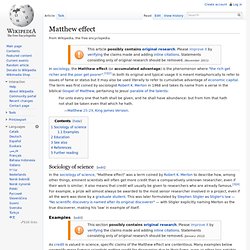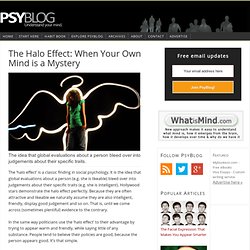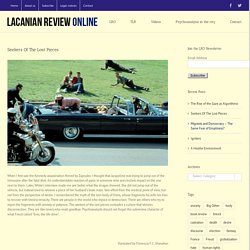

Psychology... Psychologie - Psychanalyse - Psychiatrie. Psychology. Psychosomatica. Psychology. Psychology. General Psych. PSYCHe. Psychology. Brain/Mind. Psychology. Psychology. La santé mentale en ligne. Comfort Zone. Anxiété de performance. Gestalt. CONCEPTS. 10 Psychological States You've Never Heard Of... and When You Experienced Them.
Character Strengths and Virtues: A Classification. Looking after your mental health. Values. Explanations > Values.

Explaining the behaviour. Maslow Self Actualization - unlearn. "Self Actualization is the intrinsic growth of what is already in the organism, or more accurately, of what the organism is.

" Abraham Maslow Maslow studied healthy people, most psychologists study sick people. Affect Regulation Worksheets & Handouts. Nudges : incitations vertueuse, flicage invisible? Psicologia Gestalt: teoria, cos'è e uso nel marketing - Inside Marketing. List of thought processes. Nature of thought[edit] Thought (or thinking) can be described as all of the following: An activity taking place in a: brain – organ that serves as the center of the nervous system in all vertebrate and most invertebrate animals (only a few invertebrates such as sponges, jellyfish, adult sea squirts and starfish do not have a brain).

It is the physical structure associated with the mind. mind – abstract entity with the cognitive faculties of consciousness, perception, thinking, judgement, and memory. Personality Tests. Cognitive Atlas. Secrets of the teenage brain. Several years ago Frances E Jensen’s 16-year-old son wrote off a car.

A few years earlier, her other son had returned from a friend’s house with his hair dyed jet black. The University of Pennsylvania neurologist was finding her teenagers’ erratic behaviour increasingly taxing, so she decided to study teenage thought processes and gathered her research in the book The Teenage Brain. Mind Wandering: A New Personal Intelligence Perspective. Some recent studies (Baird et al., 2011, 2012; Smallwood et al., 2011b; Immordino-Yang etal., 2012) have provided glimpses of how mind wandering or “constructive, internal reflection” (Immordino-Yangetal.,2012) might benefit the individual, but we are just beginning to scratch the surface.

To gain a fuller understanding of the benefits of positive constructive daydreaming we need to apply tools and metrics (as in Klinger et al., 1980; Hoelscher et al., 1981; Nikles et al., 1998; Cox and Klinger, 2011; Klinger and Cox, 2011) that enable us identify the personally meaningful goals, aspirations, and dreams of individuals and determine how mind wandering supports or undermines those goals. Given the highly personal nature of mind wandering, we need a new focus and new metrics. Intelligence theories provide an interesting parallel. Executive Attention Network To help correct this imbalance in the literature, I recently proposed the Theory of Personal Intelligence. Default Mode Network.
Beautycheck - social perception. Do attractive people have any advantages?

Are they treated better than less attractive? Is it important to look good on an application photo? According to our investigations the answer to these questions is yes. We could show that people are perceived more positively the more attractive they are. In order to examine this hypothesis we presented a range of different faces (unattractive, average attractive and attractive ones) to test subjects and asked to judge the person shown with respect to the following personality items: Top 10 Strange Phenomena of the Mind - Top 10 Lists. Humans The mind is a wonderful thing – there is so much about it which remains a mystery to this day.

Science is able to describe strange phenomena, but can not account for their origins. While most of us are familiar with one or two on this list, many others are mostly unknown outside of the psychological realm. Matthew effect. For unto every one that hath shall be given, and he shall have abundance: but from him that hath not shall be taken even that which he hath.

Sociology of science[edit] In the sociology of science, "Matthew effect" was a term coined by Robert K. Merton to describe how, among other things, eminent scientists will often get more credit than a comparatively unknown researcher, even if their work is similar; it also means that credit will usually be given to researchers who are already famous.[3][4] For example, a prize will almost always be awarded to the most senior researcher involved in a project, even if all the work was done by a graduate student. This was later formulated by Stephen Stigler as Stigler's law — "No scientific discovery is named after its original discoverer" — with Stigler explicitly naming Merton as the true discoverer, making his 'law' in example of itself.
Halo Effect. The idea that global evaluations about a person bleed over into judgements about their specific traits.

The ‘halo effect’ is a classic finding in social psychology. It is the idea that global evaluations about a person (e.g. she is likeable) bleed over into judgements about their specific traits (e.g. she is intelligent). Hollywood stars demonstrate the halo effect perfectly. Because they are often attractive and likeable we naturally assume they are also intelligent, friendly, display good judgement and so on. That is, until we come across (sometimes plentiful) evidence to the contrary. In the same way politicians use the ‘halo effect’ to their advantage by trying to appear warm and friendly, while saying little of any substance. Seekers Of The Lost Pieces – The Lacanian Review. When I first saw the Kennedy assassination filmed by Zapruder, I thought that Jacqueline was trying to jump out of the limousine after the fatal shot.

An understandable reaction of panic in someone who sees bullets impact on the one next to them. Later, White’s interview made me see better what the images showed. She did not jump out of the vehicle, but instead tried to retrieve a piece of her husband’s brain mass. The Baader-Meinhof Phenomenon. You may have heard about Baader-Meinhof Phenomenon before. In fact, you probably learned about it for the first time very recently. If not, then you just might hear about it again very soon. How walking through a doorway increases forgetting. Like information in a book, unfolding events are stored in human memory in successive chapters or episodes. One consequence is that information in the current episode is easier to recall than information in a previous episode.
An obvious question then is how the mind divides experience up into these discrete episodes? Recognising the five stages of anger. Lethologica: what happens when a word is on the tip of the tongue. “Wait, I swear, I know this!” You say. “Give me a second, it’s on the tip of my tongue… Does it start with a K? Maybe a C?” You feel like you are just about to remember, but somehow the memory feels stuck in your mouth. Why Do You Have to Pee the Closer You Get to a Bathroom? - Shape Magazine. You know that terrible "gotta go" feeling that seems to get stronger and stronger the closer you get to your front door?
You're fumbling for your keys, ready to toss your bag on the floor and make run for the bathroom. It's not all in your head-it's a real thing called latchkey incontinence. (Psst... These are The Surprising Pelvic Perks of Peeing In the Shower.) The reasons why food tastes better in a bowl than on a plate. Why Love Hurts: The Sociology of How Our Institutions Rather Than Our Personal Psychological Failings Shape the Romantic Agony of Modern Life. When Complex Trauma Is Misdiagnosed as Anxiety. 3K+Save. The Effects Of Emotional Abuse & How To Heal Them - mindbodygreen. Insomnia, appetite changes, constant fear, a sense of doom, and hopelessness: self-destruct mode. Apathy. Indifference. Lack of Compassion. – The Coffeelicious.
These words, and what they have come to mean, are what will destroy our World. Let me tell you a story. Half of Your Friends Aren’t Actually Your Friend. A Short Dictionary of Psychoanalysis. Your blackswan character analysis results. Verso la psicologizzazione della società. Syndrome de l'imposteur. Myths About Giftedness. Psychology and stuff. Psychology. The Human Psyche. Psychology. Psychology theories. Psychology & behaviour.
PSYCHOLOGY AND PHILOSOPHY. Psychology. Isolement. Mind fuck. Perfectionism, Procrastination, and Distress. Baker-Miller Pink - Wikipedia. Ideasthesia - Wikipedia. On Smell. ON BEING INFP. All of the images from The Red Book by Carl Jung by JAY See. Extraverted Intuition. Introverted Feeling. Cognitive Atlas. This Nifty Infographic Is a Great Introduction to Neuroplasticity and Cognitive Therapy. Le capacità cognitive diffuse degli insetti sociali.
The 12 Common Archetypes. The Phobia List. The Psychology of Our Willful Blindness and Why We Ignore the Obvious at Our Peril. People who think their opinions are superior to others are most prone to overestimating their relevant knowledge and ignoring chances to learn more. Novelty Theory ° A Bicameral Mind. Stockholm syndrome. How walking through a doorway increases forgetting. 9 Signs You Have a Crazy Strong Personality but Are Actually Pretty Sensitive. Five Ways To Spot Passive-Aggressive Behavior. How to Deal With Assholes (and Cool People Too)
The Female Narcissist. Signs You Have a Sense of Entitlement Complex. Journey through Psychopath / Narcissist abuse. Healing bits and bobs... 7 Things You Need to Know About Narcissists, From A Psychologist's Perspective. 7 Of The Most Harmful Narcissistic Manipulation Tactics. 7 signs how you punish a narcissist, like really hurt them. 20 Diversion Tactics Highly Manipulative Narcissists, Sociopaths And Psychopaths Use To Silence You. How to Identify Being a Narcissistic Extension: 9 Steps. Are you a Spiritual Narcissist? 20 Traits of Emotional Abusers - SwanWaters. 11 Signs That Someone You Know Is Hiding Depression – Learning Mind. Are You a “Pre-crastinator”? Hikikomori: una sindrome che colpisce gli adolescenti - Il lato oscuro del Web. La condanna degli alessitimici: non sapere esprimere le proprie emozioni Diogenes syndrome. Some Scientists Believe Loneliness is Becoming an Epidemic.